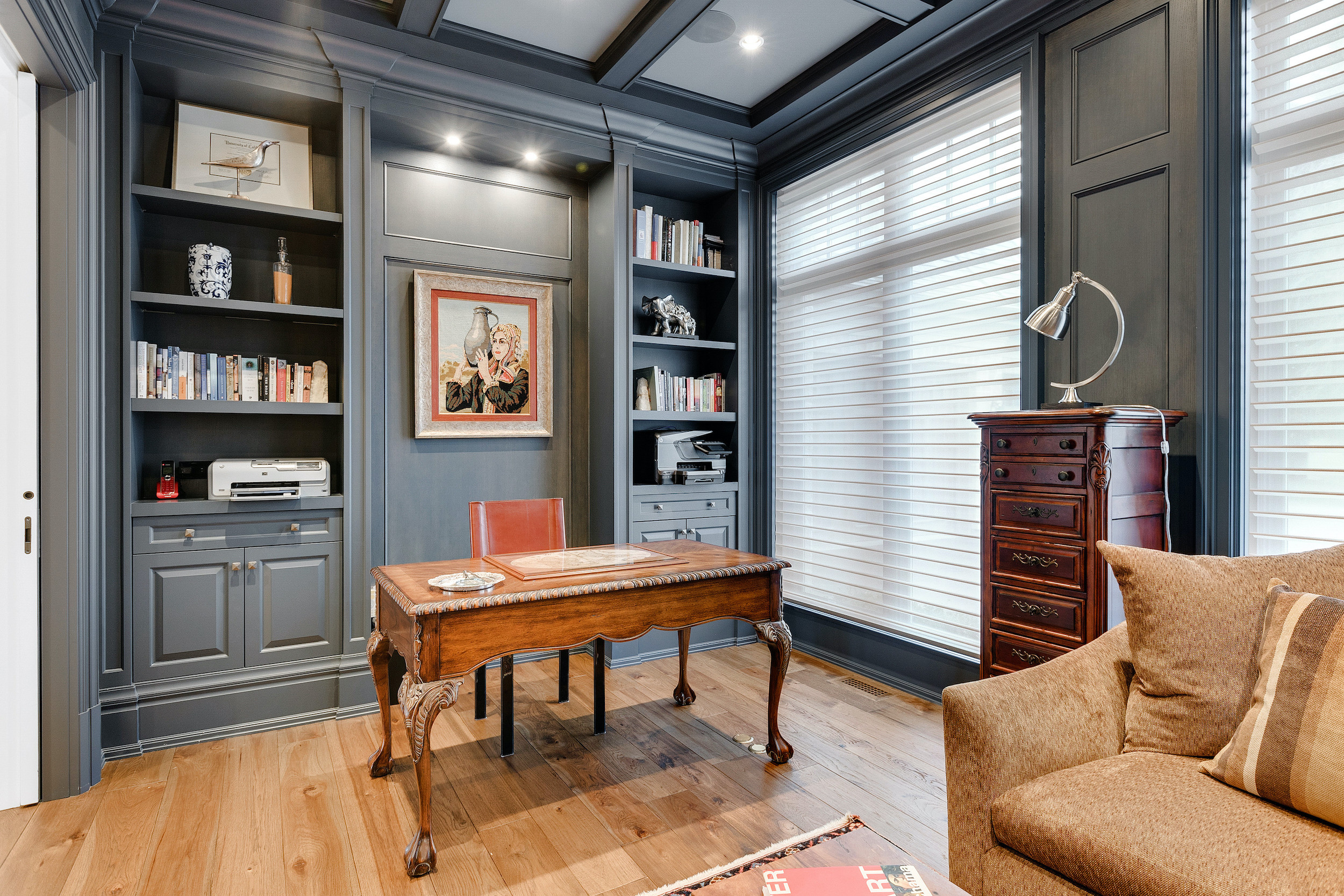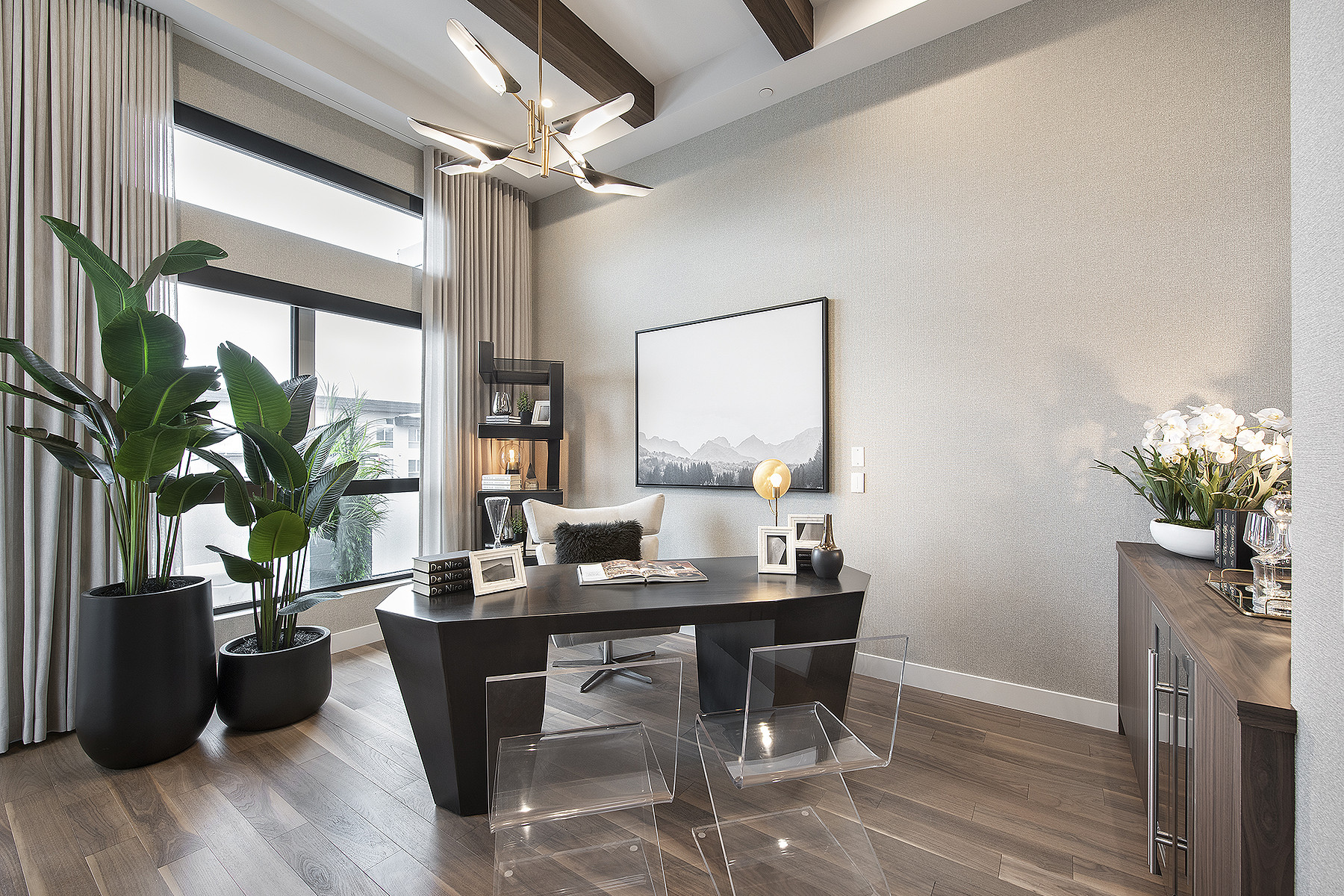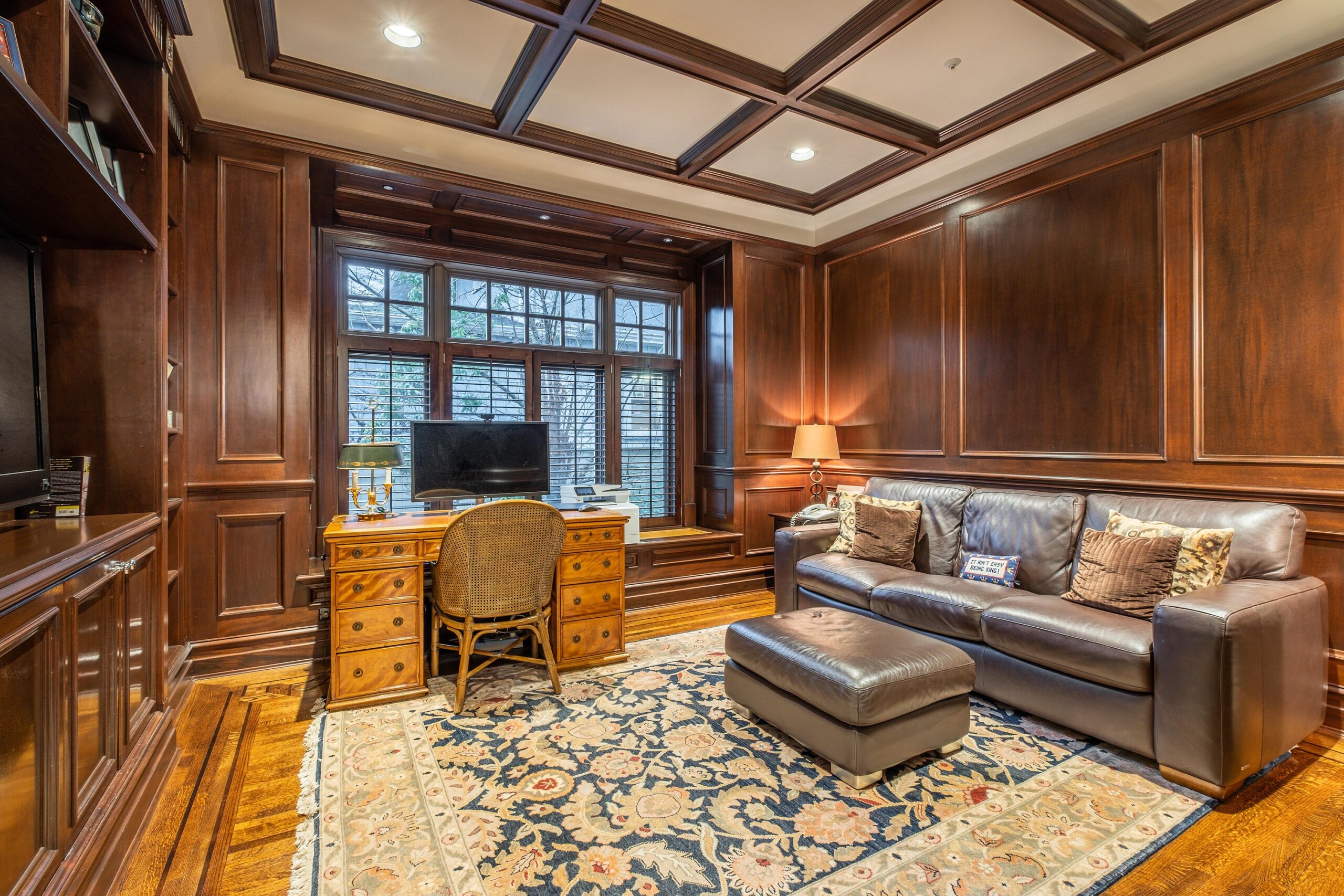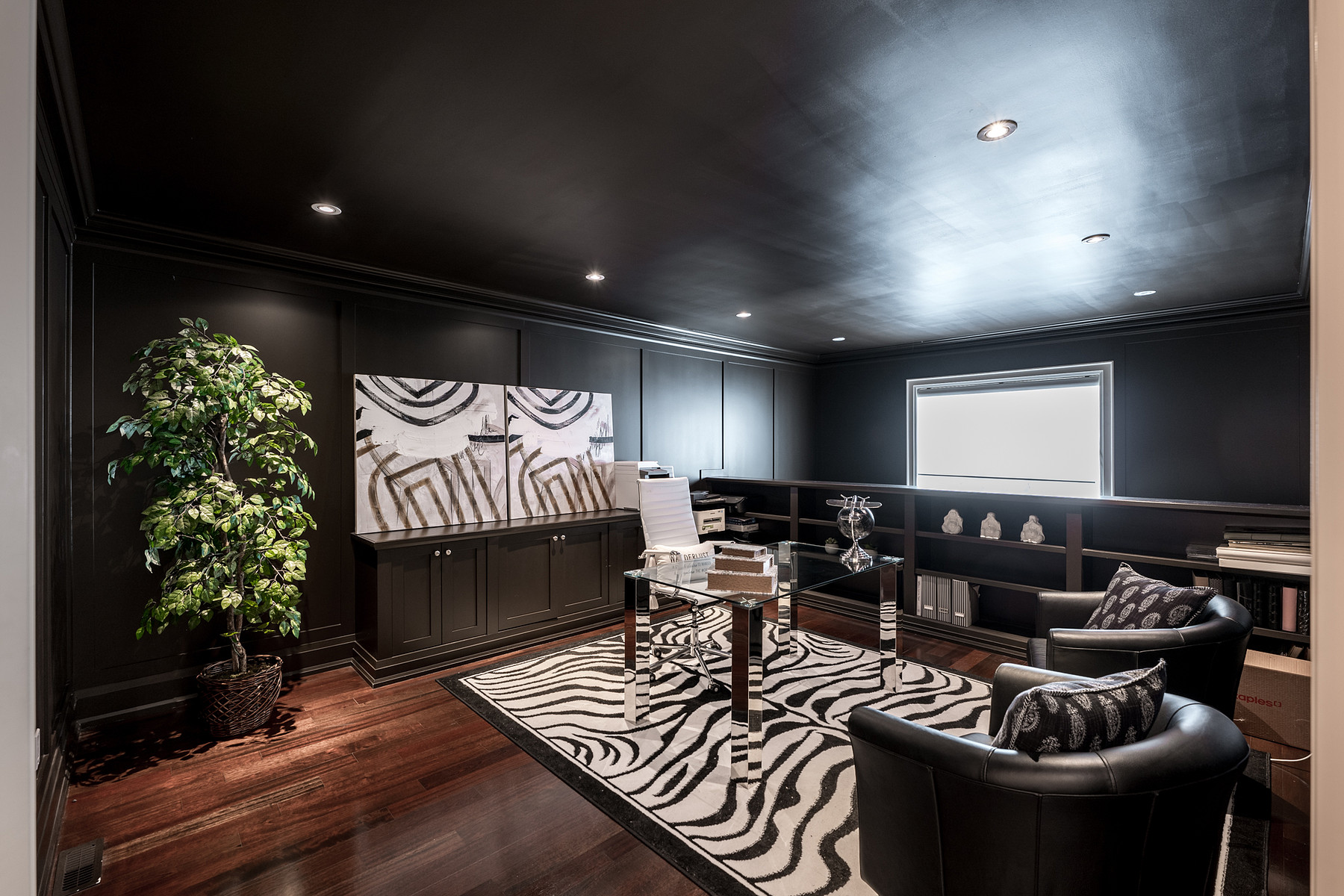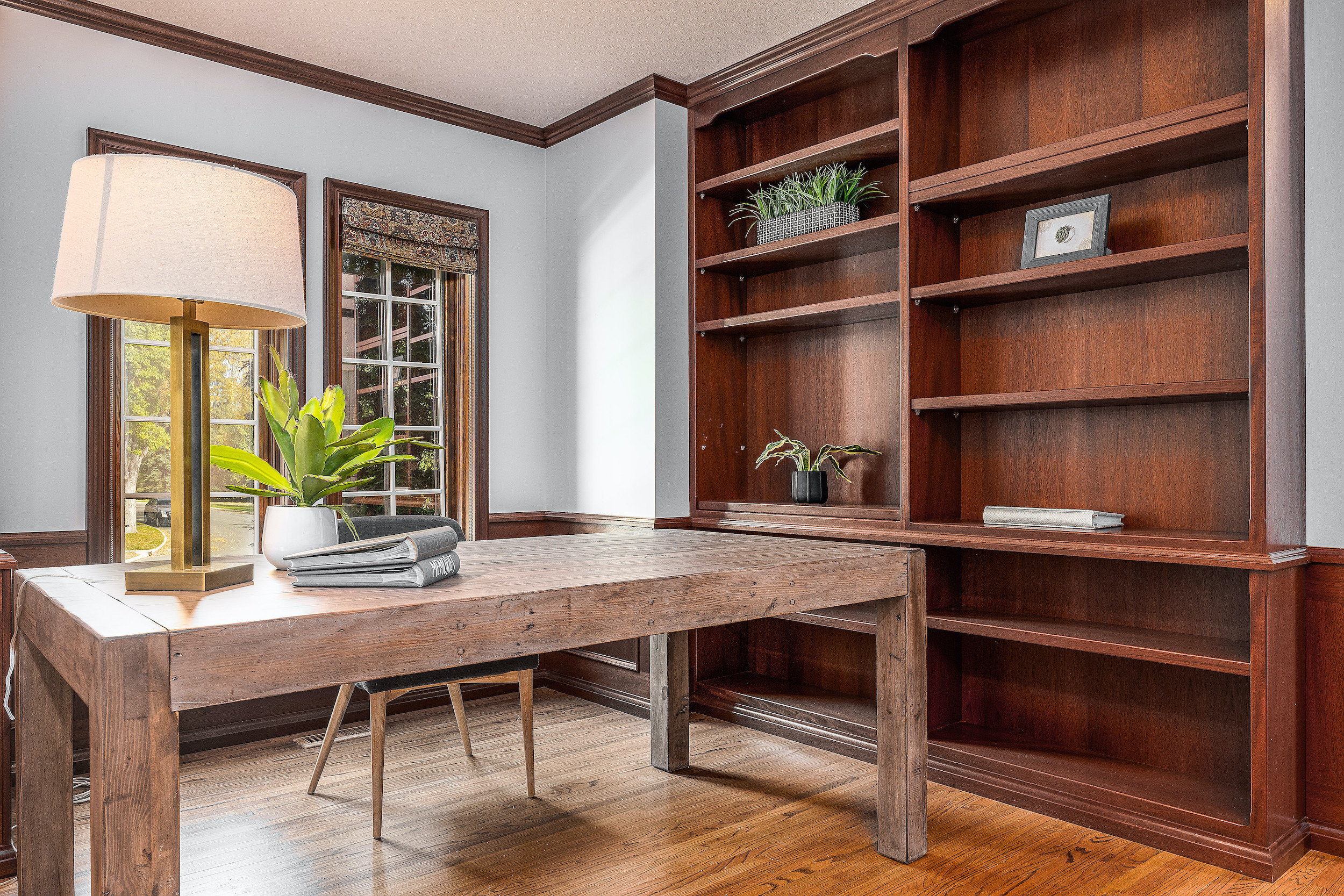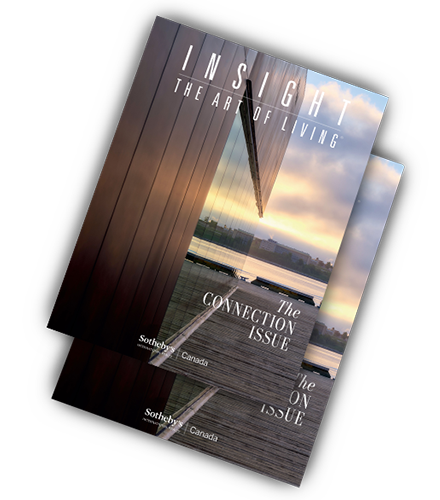As more and more people run businesses, work remotely, and pursue creative endeavours from home, the home workspace has become an integral part of a functional residence. Creating a space that not only fosters good work practices but also inspires is an important part of an office interior design plan. Taking on the following tips can result in a stylish, sophisticated office you won’t mind spending time in.
Illuminate Your Creative Space
When revamping your office lighting, look to gold and natural materials to add texture and warmth to your décor. Burnished desk lamps and metallic overheads have seen a rise in popularity, as the soft glow of gold doesn’t overwhelm or distract. Whether you opt for a standing lamp or an overhead fixture, check that the majority of the light isn’t blocked or shadowed when you’re seated.
When in comes to injecting a bit of the natural world into your office—especially important in spaces without windows—turn to woven pendant lights and paper shades bring in a sense of the outdoors. Outfit your selections with LED bulbs: once a glaringly garish option, LED lights have benefited from the cultural shift towards eco-consciousness and are now available in a variety of sizes, colours, and brightnesses.
Create a Memorable First Impression
It can be easy to get boxed in on office design—the requirements of desk, chair, and storage can quickly turn utilitarian. But the home office is the perfect place to flout convention and source unexpected pieces. Wall-mounted desks, repurposed live-edged planks for shelving, or a perfectly-sourced antique armoire can all make your space feel better than a cubicle.
Go vintage with a plush, upholstered chair and a secretary desk, or skew Scandinavian-chic with simple white silhouettes that limit visual noise. Homey accessories—like a Persian rug—and bespoke artwork will keep your office from feeling corporate.
Keep Track of Ergonomics
Ergonomics is a buzzword that has real implications for your home office. Much of the conversation focuses on chair height and proper posture, but don’t overlook secondary considerations—monitors should sit at least an arm’s-length away, at eye level, and your keyboard and mouse should be within easy reach to reduce the damage of repetitive movements. Every inch your head sits forward from your neck can add 10 pounds of weight to your spine—meaning the repercussions of your working posture pile on quickly.
Look to brands like Herman Miller and Vitra for a combination of stylish and functional workspace solutions: mid-century modern design, leather detailing, and luxury wood finishings are not outside the bounds of a supportive office setup.
Take Inspiration From Nature
Biophilic design maintains that we need to see nature reflected in our modern built environments to achieve optimum physical and mental health. The interplay of lighting, open space, plants, natural forms, and water can all serve to recreate the feel of an outdoor space indoors.
In your home office, give the nod to nature with your favourite species of greenery. Indoor plants improve air quality and, in certain numbers, can reduce ambient noise. Green walls are a trend on the rise; if your space doesn’t permit a large installation, adding a shelf of potted succulents or a small portrait-sized moss hanging can evoke the feeling of being outdoors.
Incorporate Colour Theory
When it comes to corporate spaces, colour has been employed to signal who a brand is and why. When it comes to space in your home, colour is less about who you’re working for and more about how you want to feel while you work. Classic colour theory can stand you in good stead—if your work involves dynamic decision-making or constant motion, brighter, vibrant colours can invigorate your space; if prolonged concentration is the order of your days, muted blues and whites can create a calming, uninterrupted milieu. Trending choices like matte black and moody brown (best used as an accent on one wall) can add formality and authority to your workspace.
Wallpaper and large-scale decals have also come into vogue in recent years, meaning that you can work in an enclosed space surrounded by birch trees or amongst the tropical leaves. Graphic prints and modern florals—even if only incorporated on pillows or throws—mean there’s no reason to default to office beige.
With the right personal touches and keen consideration of your work habits, your home workspace can provide a boost to your office ventures. In a room that reflects your tastes, streamlines your workflow, and limits distractions, you may find yourself stumbling over new reserves of efficiency and productivity, right in your own home.
Before striking out on your home office overhaul, see how Canada’s top designers approach home décor, and review these tips on organizing your home. This article was originally published on March 9, 2018 and has been updated on January 22,2021.



